![AWS Data Engineer: Comprehensive Guide to Your New Career [2025] 1 Post thumbnail](https://www.guvi.in/blog/wp-content/uploads/2024/06/Feature-Image-1-2.png)
AWS Data Engineer: Comprehensive Guide to Your New Career [2025]
Mar 06, 2025 6 Min Read 10192 Views
(Last Updated)
In the rapidly evolving digital landscape, data engineering has emerged as a critical field, and Amazon Web Services (AWS) stands at the forefront of innovation, offering tools and services that have transformed how businesses manage and process data.
As an aspiring AWS data engineer, you are on the cusp of entering a dynamic and rewarding career path where expertise in the AWS cloud, AWS Lambda, and data engineering principles opens doors to endless opportunities.
The demand for skilled professionals who can navigate the complexities of AWS to design, build, and maintain scalable and efficient data infrastructures has never been higher.
This guide aims to set you on the right trajectory, equipping you with the knowledge and skills needed to excel in this domain.
Table of contents
- Step 1: Mastering Core Skills and Understanding AWS Basics
- Understanding the Role of an AWS Data Engineer
- Key Skills Needed: SQL, Programming (Python), and AWS Services
- Best Practices for Early Learning and Skill Development
- Step 2: Delving into AWS Services and Tools for Data Engineering
- Exploring AWS Core Services: S3, EC2, RDS, and Others
- Hands-on Practice with AWS Management Console
- Navigating AWS Data Engineering Tools: AWS Glue, Redshift, EMR
- Step 3: Achieving AWS Certifications for Data Engineering
- Choosing the Right AWS Certification Path
- Preparation Tips for AWS Certified Data Engineer — Associate
- Study Resources and Practice Tests
- Step 4: Building Real-world Experience through Projects
- Project Ideas to Demonstrate Your Skills
- Working with Streaming Data and Big Data Analytics
- Contributing to Open Source and Engaging in Collaborative Projects
- Step 5: Continuous Learning and Keeping Up with Industry Trends
- Staying Updated with New AWS Features and Services
- Attending Workshops, Webinars, and AWS Meetups
- Engaging with the AWS Community and Online Forums
- Key Takeaways...
- FAQs
- What skills are required for an AWS data engineer?
- Which AWS certification is required for a data engineer?
- What are the 5 AWS certifications?
- Which AWS certification is best for beginners?
Step 1: Mastering Core Skills and Understanding AWS Basics
Understanding the Role of an AWS Data Engineer
As an AWS Data Engineer, you are tasked with designing, building, and maintaining scalable and efficient data infrastructures using Amazon Web Services. This role requires a deep understanding of both the technical and strategic aspects of data management in the cloud environment.
![AWS Data Engineer: Comprehensive Guide to Your New Career [2025] 2 aws data engineer](https://www.guvi.in/blog/wp-content/uploads/2024/09/Image-1-1-2.png)
Key Skills Needed: SQL, Programming (Python), and AWS Services
SQL Skills
- Learn SQL Fundamentals: Start with the basics of SQL, including querying data, filtering records, and performing basic joins.
- Practice SQL Queries: Enhance your skills by working with sample databases and real-world datasets. Regular practice will help you master the retrieval, modification, and analysis of data.
- Advanced SQL Techniques: Dive into more complex SQL concepts such as window functions, subqueries, and optimizing complex queries to handle larger datasets efficiently.
Programming Skills
- Choose a Programming Language: Python and Java are highly recommended due to their extensive use in data engineering.
- Learn Scripting: Focus on scripting to automate repetitive tasks and manipulate data structures effectively.
- Version Control: Get accustomed to using version control systems like Git. This is crucial for managing code changes and collaborating with other developers.
AWS Core Services
- AWS Management Console: Gain practical experience by using the console to create and manage AWS resources. Practice launching EC2 instances and configuring security groups.
- Fundamental AWS Services: Familiarize yourself with key services such as Amazon S3, Amazon EC2, and Amazon RDS. These services form the backbone of most AWS-based data engineering tasks.
Best Practices for Early Learning and Skill Development
To effectively master AWS basics and core data engineering skills, consider the following best practices:
- Hands-on Practice: There is no substitute for hands-on practice. Utilize the AWS Free Tier to experiment with various AWS services without incurring costs.
- Continuous Learning: The field of data engineering and AWS services is ever-evolving. Stay updated with the latest technologies and practices through online courses, webinars, and community forums.
- Collaborative Learning: Engage with the community. Participate in forums, attend meetups, and contribute to open-source projects to learn from experienced professionals.
By focusing on these foundational skills and practices, you’ll be well-prepared to tackle more advanced data engineering challenges in your career as an AWS Data Engineer.
Before we move to the next part, you should have a deeper knowledge of data engineering concepts. You can consider enrolling yourself in GUVI’s Big Data and Cloud Analytics Course, which lets you gain practical experience by developing real-world projects and covers technologies including data cleaning, data visualization, Infrastructure as code, database, shell script, orchestration, cloud services, and many more.
Additionally, if you want to explore Data Engineering and Big Data through a Self-paced course, try GUVI’s Data Engineering and Big Data course.
Step 2: Delving into AWS Services and Tools for Data Engineering
Exploring AWS Core Services: S3, EC2, RDS, and Others
AWS offers a variety of core services that are essential for data engineering. Here’s how you can leverage these services:
- Amazon S3: Use this scalable storage in the cloud to manage a wide range of data from websites to data lakes. Its high scalability makes it ideal for handling large volumes of data across multiple availability zones.
- Amazon EC2: Virtual servers in the cloud provide the computing capacity needed for data processing and ETL tasks. EC2 instances can be easily scaled up or down to meet processing demands.
- Amazon RDS: This managed relational database service supports multiple database engines such as PostgreSQL, MySQL, and Oracle, facilitating easy setup, operation, and scaling of relational databases in the cloud.
- Additional Services: AWS also includes services like Amazon DynamoDB for NoSQL database solutions, and AWS IAM for managing access and security.
![AWS Data Engineer: Comprehensive Guide to Your New Career [2025] 3 AWS](https://www.guvi.in/blog/wp-content/uploads/2024/09/Image-2-1-3.png)
Hands-on Practice with AWS Management Console
To effectively use AWS services, familiarize yourself with the AWS Management Console. Here are steps to enhance your practical skills:
- Launch and Manage EC2 Instances: Start by setting up EC2 instances, configuring security groups, and connecting storage options.
- Configure Amazon RDS: Create and manage RDS instances, choose your database engine, and set up automatic backups and scaling.
- Utilize S3 Buckets: Practice creating and managing S3 buckets, uploading files, and setting access policies to secure your data.
Practical exercises will help solidify your understanding of how these services can be integrated into data engineering workflows.
Navigating AWS Data Engineering Tools: AWS Glue, Redshift, EMR
AWS provides specialized tools for data engineering that streamline the process of data transformation and analysis:
- AWS Glue: A fully managed ETL service that simplifies the preparation of data for analytics. It automatically discovers data and stores metadata in the AWS Glue Data Catalog, making data immediately searchable and available for ETL processes.
- Amazon Redshift: A fast, scalable data warehouse that enables you to run complex analytics queries across petabytes of data. Integration with S3 and dynamic scaling enhances its performance for data warehousing tasks.
- Amazon EMR: Supports big data frameworks like Apache Hadoop and Apache Spark, making it suitable for processing large datasets. EMR facilitates the management of clusters and optimizes the processing of diverse data types.
By mastering these tools, you’ll be able to build efficient data pipelines and perform advanced data analysis, pushing your data engineering capabilities to new heights with AWS.
Also Read: Code to Cloud Using Terraform and AWS: The Epic Guide to Automated Deployment [2025]
Step 3: Achieving AWS Certifications for Data Engineering
Choosing the Right AWS Certification Path
Achieving an AWS certification, particularly the AWS Certified Data Engineer Associate DEA-C01, is a significant step in validating your expertise in data engineering on the AWS platform.
This certification is designed for professionals who have at least 2-3 years of experience in data engineering and a solid understanding of data management within the AWS ecosystem.
It assesses your ability to design, implement, and manage secure, scalable data solutions using AWS services.
![AWS Data Engineer: Comprehensive Guide to Your New Career [2025] 4 AWS certifications](https://www.guvi.in/blog/wp-content/uploads/2024/09/Image-3-1-2.png)
Also Read: Is AWS Certification Worth It? | Best AWS Certifications 2025
Preparation Tips for AWS Certified Data Engineer — Associate
- Understand the Exam Structure: The DEA-C01 certification exam consists of multiple-choice and multiple-response questions, covering various aspects of AWS data engineering. The exam tests your knowledge of data ingestion, transformation, storage, and security.
- Experience Requirement: Ensure you have the requisite 1-2 years of hands-on experience with AWS services, as practical experience is crucial for understanding the complexities of real-world data engineering tasks.
- Focus on Core Domains: Concentrate your studies on key domains such as Data Ingestion & Transformation, Data Store Management, Data Operations & Support, and Data Security and Governance.
Study Resources and Practice Tests
Utilize a variety of study materials and practice tests to prepare effectively for the certification exam:
- AWS Skill Builder: This online learning platform offers official exam prep materials that are structured to help you understand exam topics and formats.
- Practice Exams: Engage with practice tests that offer various modes such as timed exams, section-based tests, and review modes. These tests provide detailed explanations and reference links for each question, helping you understand the rationale behind correct answers.
- Flashcards and Cheat Sheets: Use visual aids like flashcards to reinforce core concepts and cheat sheets for quick reviews before the exam.
- Discussion Boards and Instructor Support: Participate in forums and discussion boards where you can ask questions and receive guidance from AWS experts and fellow candidates.
- Continuous Feedback and Updates: Choose resources that are regularly updated based on the latest exam feedback and trends. This ensures that you are studying the most relevant and current material.
By following these preparation tips and utilizing the right study resources, you can enhance your chances of achieving the AWS Certified Data Engineer Associate certification and advancing your career in AWS data engineering.
Step 4: Building Real-world Experience through Projects
Building real-world experience is pivotal for any aspiring AWS data engineer. By engaging in practical projects, you not only sharpen your technical skills but also gain valuable insights into the data engineering landscape.
This section will guide you through various project ideas, working with streaming data, and how contributing to open-source projects can enhance your career prospects.
Project Ideas to Demonstrate Your Skills
To kickstart your journey, here are a few project ideas that can help you demonstrate your AWS data engineering skills:
- YouTube Data Analysis:
- Objective: Execute a complete Data Engineering project from data ingestion to visualization.
- Technologies Used: Python, PySpark, AWS Services (Athena, Glue, Redshift, S3, IAM, Lambda, Quicksight).
- Learning Outcome: Understand end-to-end data pipeline construction and scheduling.
![AWS Data Engineer: Comprehensive Guide to Your New Career [2025] 5 Data Analysis](https://www.guvi.in/blog/wp-content/uploads/2024/09/Image-4-1-2.png)
- Stock Market Real-Time Data Analysis:
- Objective: Build a real-time simulation app to analyze stock market data.
- Technologies Used: Kafka, AWS, Python.
- Learning Outcome: Develop skills in real-time data streaming and analysis using Athena.
![AWS Data Engineer: Comprehensive Guide to Your New Career [2025] 6 Stock Market Real-Time Data Analysis](https://www.guvi.in/blog/wp-content/uploads/2024/09/Image-5-4.png)
- SmartPipeNet System:
- Objective: Monitor and react to events in a simulated pipeline network system.
- Technologies Used: MQTT, Kafka, Spark Streaming API, HBase, Java-based Dashboard.
- Learning Outcome: Gain hands-on experience in IoT analytics and real-time data processing.
Explore More: 9 Most Creative Data Engineering Project Ideas To Kickstart Your Career
Working with Streaming Data and Big Data Analytics
Streaming data is a cornerstone of modern data engineering. AWS provides several tools that can help you build custom applications for streaming data analysis:
- Amazon Kinesis Data Streams: Allows for real-time data processing of large streams, supporting frameworks like Kinesis Client Library (KCL), Apache Storm, and Apache Spark Streaming.
- Amazon Managed Streaming for Apache Kafka (Amazon MSK): Simplifies the setup and management of Apache Kafka, enabling you to process large streams of data efficiently.
![AWS Data Engineer: Comprehensive Guide to Your New Career [2025] 7 Amazon Managed Streaming for Apache Kafka](https://www.guvi.in/blog/wp-content/uploads/2024/09/Image-6-2.png)
Contributing to Open Source and Engaging in Collaborative Projects
Contributing to open-source projects is not only rewarding but also a significant learning opportunity. Here are some insights from contributors:
- Learning from Best Practices: Engage with projects that implement robust testing and software engineering principles to improve your coding and project management skills.
- Community Interaction: Open-source contributions often lead to interactions with other tech professionals, providing a platform for learning and feedback.
- Practical Experience: Regular contributions help you understand project architectures and improve problem-solving skills in real-world scenarios.
By participating in these projects and contributing to open-source communities, you gain exposure to a variety of technologies and methodologies, significantly boosting your credentials as an AWS data engineer.
Engaging actively in these projects not only builds your skillset but also enhances your visibility in the tech community, opening up further career opportunities.
Step 5: Continuous Learning and Keeping Up with Industry Trends
Staying Updated with New AWS Features and Services
To ensure you’re at the forefront of data engineering advancements, regularly updating your knowledge of AWS features and services is crucial. Here are some effective strategies:
- AWS Stash and Blogs: Regularly visit AWS Stash for the latest whitepapers and code changes. During events like AWS re:Invent, this platform is invaluable for staying updated with new blog posts and announcements.
- RSS Feeds: Integrate RSS feeds into your Slack workspace to receive updates directly. This can be done by setting up an RSS app and subscribing to feeds such as the AWS News Blog, AWS Security Blog, and AWS Big Data Blog. Instructions for setting this up can be found here.
| RSS Feed Example | URL |
|---|---|
| AWS News Blog | https://aws.amazon.com/blogs/aws/feed/ |
| AWS Security Blog | https://aws.amazon.com/blogs/security/feed/ |
| AWS Big Data Blog | https://aws.amazon.com/blogs/big-data/feed/ |
- Cookies and Site Preferences: Understanding the AWS site’s cookie preferences can also play a role in customizing the content you receive, enhancing your ability to stay up-to-date with relevant features and services.
Attending Workshops, Webinars, and AWS Meetups
AWS and its partners frequently host workshops and webinars that are essential for continuous learning:
- Workshops: Participate in hands-on workshops which are updated regularly with new content by AWS specialists. These are available globally and are mobile-friendly, making it easy to engage regardless of your location.
- Webinars and Meetups: Attending AWS webinars and local meetups allows you to stay connected with the latest AWS technologies and network with other professionals.
Engaging with the AWS Community and Online Forums
Engaging with the community can significantly enhance your learning and keep you informed about the latest trends and technologies in AWS:
- AWS Forums: Visit AWS Forums to post technical questions or provide feedback. This platform helps accelerate your development efforts by engaging directly with the AWS community.
- Social Media and Online Platforms: Follow AWS on platforms like LinkedIn and Twitter. Engaging with these communities can provide quick updates and peer support.
By adopting these strategies, you can ensure that your knowledge and skills in AWS data engineering remain current and comprehensive, enabling you to adapt to new challenges and opportunities in the field.
Kickstart your career by enrolling in GUVI’s Big Data and Cloud Analytics Course where you will master technologies like data cleaning, data visualization, Infrastructure as code, database, shell script, orchestration, and cloud services, and build interesting real-life cloud computing projects.
Alternatively, if you want to explore Data Engineering and Big Data through a Self-paced course, try GUVI’s Data Engineering and Big Data course.
Key Takeaways…
Embarking on a journey to become an AWS Data Engineer presents an exciting pathway filled with learning opportunities, challenges, and the prospect of shaping the future of data infrastructure on the AWS cloud.
Through meticulous skill development, including mastering core AWS services such as S3, EC2, and RDS, coupled with an in-depth understanding of data engineering principles, aspirants can navigate their way to establishing a rewarding career.
The article outlined the critical steps toward achieving proficiency in this domain, emphasizing hands-on practice, certifications, real-world projects, continuous learning, and staying abreast of industry trends as cornerstones for success.
Moving forward, achieving the AWS Certified Data Engineer Associate certification is more than a milestone—it’s a demonstration of commitment and expertise that significantly enhances your professional credentials.
Must Know About Top 5 Reasons Why You Fail The AWS Certification Exam and How to Overcome Them
FAQs
AWS data engineers need skills in AWS services (like S3, Redshift, and EMR), data warehousing, ETL processes, SQL, Python, or Java, and an understanding of big data tools such as Hadoop and Spark.
The AWS Certified Data Analytics – Specialty certification is the most relevant for data engineers, focusing on designing and implementing AWS data analytics solutions.
The five AWS certifications are:
1) AWS Certified Cloud Practitioner
2) AWS Certified Solutions Architect – Associate
3) AWS Certified Developer – Associate
4) AWS Certified SysOps Administrator – Associate
5) AWS Certified Solutions Architect – Professional
The AWS Certified Cloud Practitioner is the best certification for beginners, providing a foundational understanding of AWS cloud services and concepts.















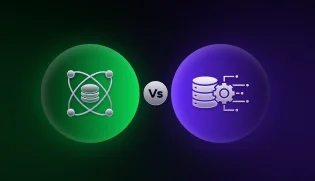
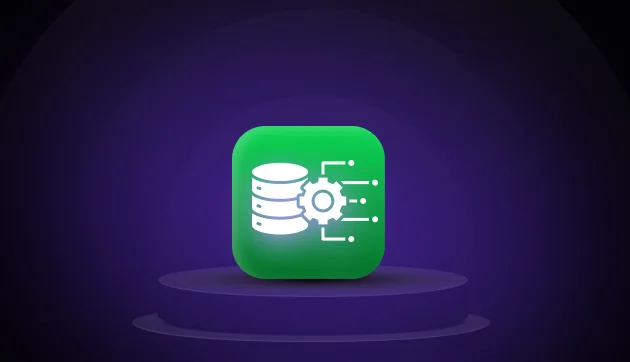
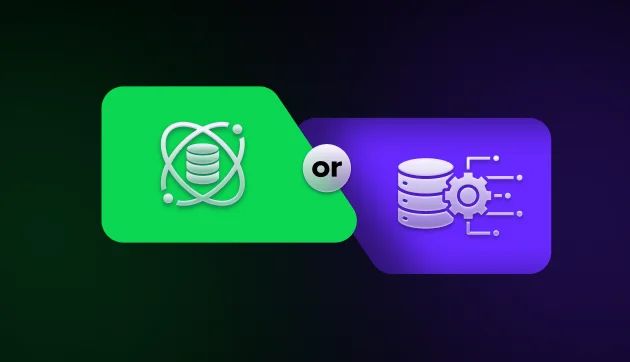
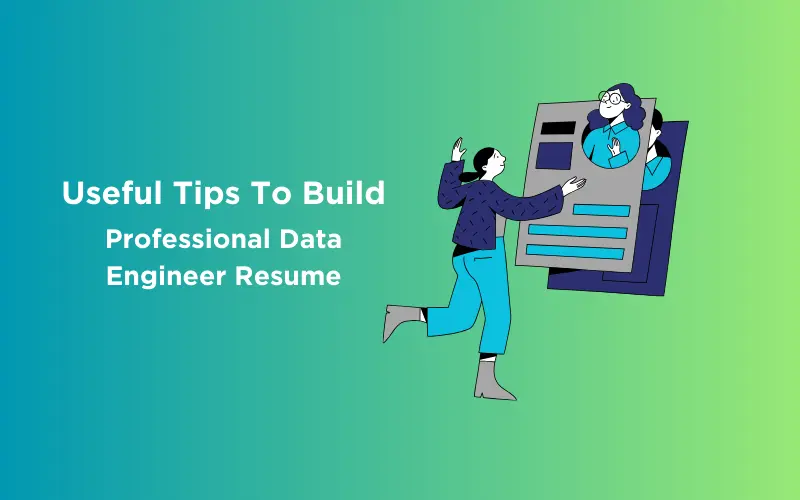


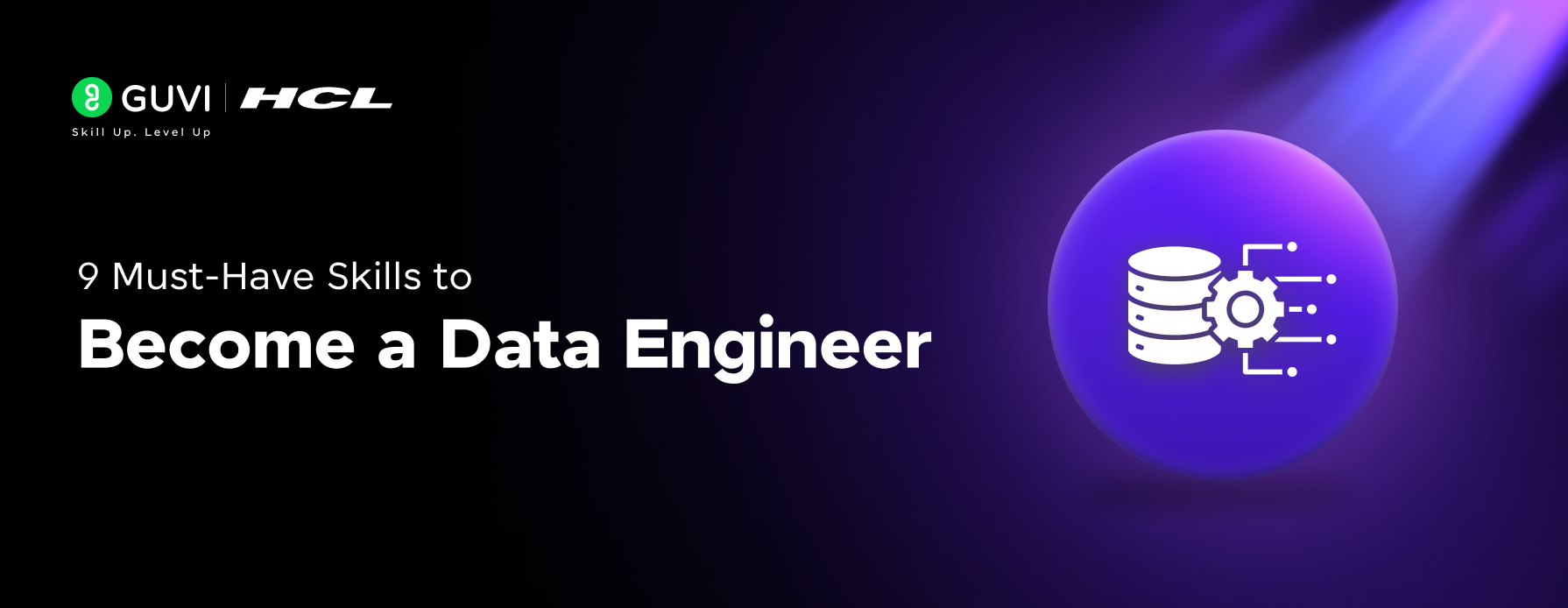


Did you enjoy this article?